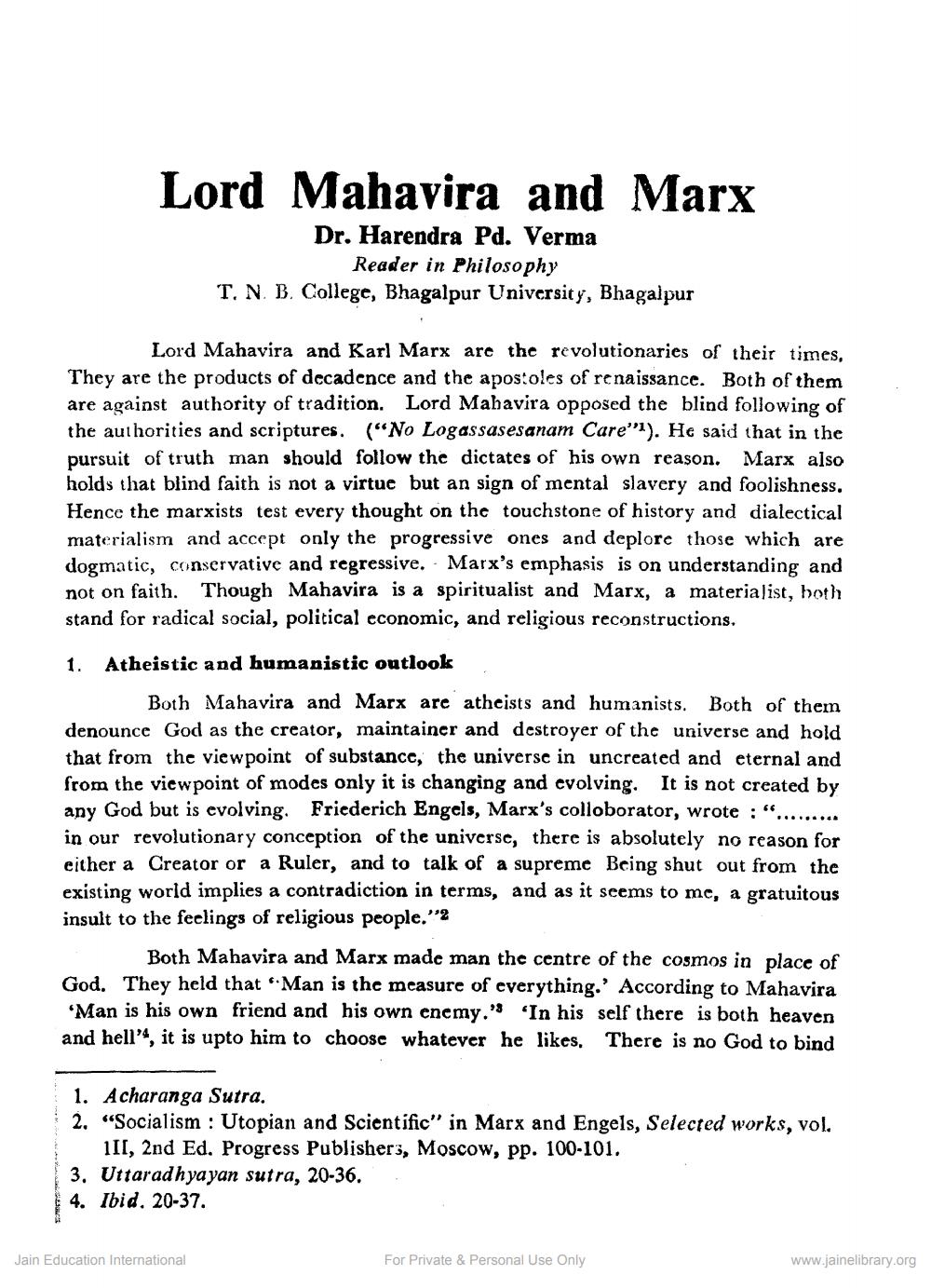________________
Lord Mahavira and Marx
Dr. Harendra Pd. Verma Reader in Philosophy
T. N. B. College, Bhagalpur University, Bhagalpur
Lord Mahavira and Karl Marx are the revolutionaries of their times. They are the products of decadence and the apostoles of renaissance. Both of them are against authority of tradition. Lord Mahavira opposed the blind following of the authorities and scriptures. ("No Logassasesanam Care"). He said that in the pursuit of truth man should follow the dictates of his own reason. Marx also holds that blind faith is not a virtue but an sign of mental slavery and foolishness. Hence the marxists test every thought on the touchstone of history and dialectical materialism and accept only the progressive ones and deplore those which are dogmatic, conservative and regressive. Marx's emphasis is on understanding and not on faith. Though Mahavira is a spiritualist and Marx, a materialist, both stand for radical social, political economic, and religious reconstructions.
Atheistic and humanistic outlook
Both Mahavira and Marx are atheists and humanists. Both of them denounce God as the creator, maintainer and destroyer of the universe and hold that from the viewpoint of substance, the universe in uncreated and eternal and from the viewpoint of modes only it is changing and evolving. It is not created by any God but is evolving. Friederich Engels, Marx's colloborator, wrote: ".
in our revolutionary conception of the universe, there is absolutely no reason for either a Creator or a Ruler, and to talk of a supreme Being shut out from the existing world implies a contradiction in terms, and as it seems to me, a gratuitous insult to the feelings of religious people.""2
1.
Both Mahavira and Marx made man the centre of the cosmos in place of God. They held that "Man is the measure of everything.' According to Mahavira 'Man is his own friend and his own enemy." In his self there is both heaven and hell", it is upto him to choose whatever he likes. There is no God to bind
1. Acharanga Sutra,
2. "Socialism: Utopian and Scientific" in Marx and Engels, Selected works, vol. III, 2nd Ed. Progress Publishers, Moscow, pp. 100-101.
3. Uttaradhyayan sutra, 20-36.
4. Ibid, 20-37.
Jain Education International
For Private & Personal Use Only
www.jainelibrary.org




